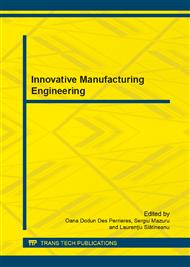p.657
p.662
p.667
p.672
p.677
p.682
p.687
p.695
p.700
Optimal Pump Scheduling to Reduce the Operating Costs
Abstract:
The pumps are mechanical structures indispensable in numerous socio-economic areas like: villages water supply, irrigations, oil industry, sewage movement, chemical movement, flood control and for the production of various goods. Pumps must supply the energy necessary to lift liquids from a lower elevation to a greater one. Pumps operation and maintenance generates significant costs. One of the most efficient methods to reduce the pump operating costs is by scheduling the pump operations. This can impose pumps to operate during periods in which the electrical tariff is cheaper and combining the operations of several pumps in an efficient way. This paper aims to analyze the possibilities and the limits of using SPEA2 multi-objective optimization algorithm implemented in Matlab in order to schedule the pumps. SPEA2 was used for the first time to schedule the pumps from a water supply system by [. In that paper the algorithm was applied in Linux. This paper presents the results obtained by SPEA2 implemented in a very used programming language, Matlab. The algorithm was improved in order to obtain better solutions. In this paper we applied the optimization methods of the pump schedule to a water supply system, but these methods can be used to minimize the operational costs of any system that incorporates pumps.
Info:
Periodical:
Pages:
677-681
DOI:
Citation:
Online since:
August 2013
Authors:
Price:
Сopyright:
© 2013 Trans Tech Publications Ltd. All Rights Reserved
Share:
Citation:


